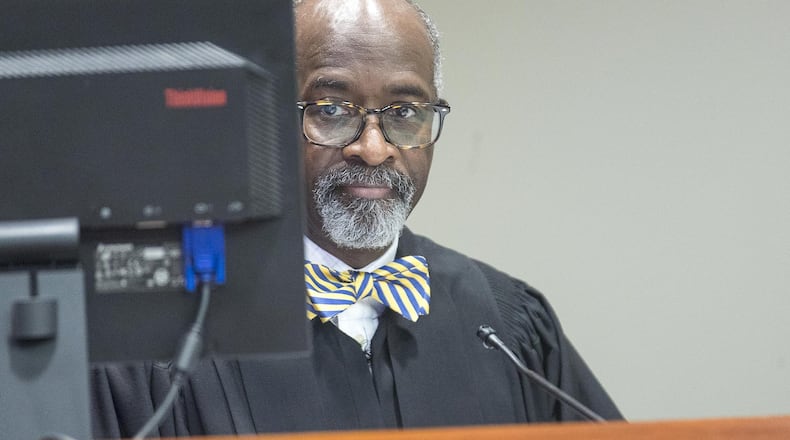Atlanta’s Civil Service Board rarely attracts the same attention as Mayor Keisha Lance Bottoms, but recent board decisions reflect a resistance to her will on high-profile police cases.
And the decisions are occurring during an election year with crime, public safety and police conduct at the forefront of the mayor’s race.
For starters, the Civil Service Board Wednesday reinstated Atlanta Police Officer Garrett Rolfe, whose fatal shooting of Rayshard Brooks sparked days of protests that at times devolved into destruction of property in Atlanta.
The Rolfe decision comes after the board ruled in February to reinstate the officers fired for tasing two college students during last summer’s downtown protests.
Bottoms last year called for the officers in those cases to be fired. But the board concluded the city failed to comply with its own ordinances in doing so.
Rolfe’s bond prevents him from returning to patrol duty, and all of the officers involved in last year’s incidents still face potential prosecution in court.
“Given the volatile state of our city and nation last summer, the decision to terminate this officer, after he fatally shot Mr. Brooks in the back, was the right thing to do,” Bottoms said in a statement after the Rolfe decision was announced. “Had immediate action not been taken, I firmly believe that the public safety crisis we experienced during that time would have been significantly worse.”
Atlanta’s Code of Ordinances describes the Civil Service Board as “the official protector of the civil service system.” City employees appeal to the board to address retaliation, suspension without pay, demotions or firings.
The board consists of five members who serve three-year terms. The mayor appoints the members with the City Council’s approval, and the mayor can also assign three additional ad hoc board members.
The Rolfe case was decided by a three-member panel chaired by Sterling Eaves, a former Fulton County Magistrate Judge appointed in 2017 by former Mayor Kasim Reed.
Eaves’ term expired last year, but she continues to serve on the board because she has not been replaced. She was the only white person to hear the Rolfe case.
The other board members in the Rolfe decision were Plemon Tauheed El-Amin, a Harvard graduate and former director of private schools in Atlanta also appointed by Reed and reinstated for another term in 2019 by Bottoms; and Robert D. Hawkins, who held executive roles at the Federal Reserve Bank of Atlanta and was a Bottoms appointee in 2019.
The panel found the city did not provide Rolfe with the proper 10-day notice of pending disciplinary action, and didn’t comply with the mandatory five-day notice in cases of emergency. Rolfe’s termination notice was served June 13 and took effect the next day.
The board also found that the city did not provide Rolfe with an adequate chance to respond to the proposed disciplinary action.
Hawkins and El-Amin in February ruled to reinstate the officers who tased the students. They ruled alongside Mary Ann Phyall, a 2019 Bottoms appointee. Phyall is a Black woman and former educator with experience as a legal assistant and voice actor. She no longer serves on the board.
Conflict between the Civil Service Board and the mayor’s office isn’t totally foreign. Mayor Reed’s administration in 2016 suspended the board from hearing cases shortly after the board ruled against the city in a controversial and high-profile case involving a 15-year Public Works’ employee arrested and fired for allegedly stealing copper wire and selling it for scrap.
The city at the time denied the connection, arguing the hearings were suspended because of administrative concerns related to board member terms.
Atlanta’s Civil Service Board has issued 54 rulings on city employee appeals since 2016, according to the board’s decision archive. Most of those rulings involved everything from public works to the airport and Watershed Management. Twenty-one of those rulings involved Atlanta’s police and corrections departments.
Other board members include Municipal Court Judge Herman Sloan, whose service began this month; attorney Suzy Ockleberry, who was appointed in March; and attorney E. Carl Touchstone, a former Griffin city solicitor with his own law firm in Atlanta. Griffin also serves as the hearing officer for the Atlanta Office of Contract Compliance.
Staff writer Christian Boone contributed to this article.
About the Author
Keep Reading
The Latest
Featured



